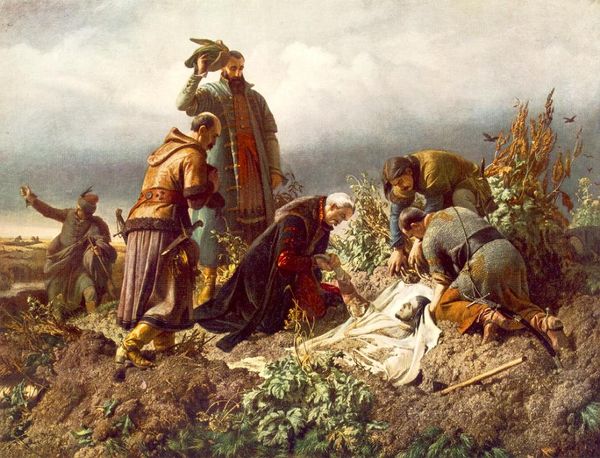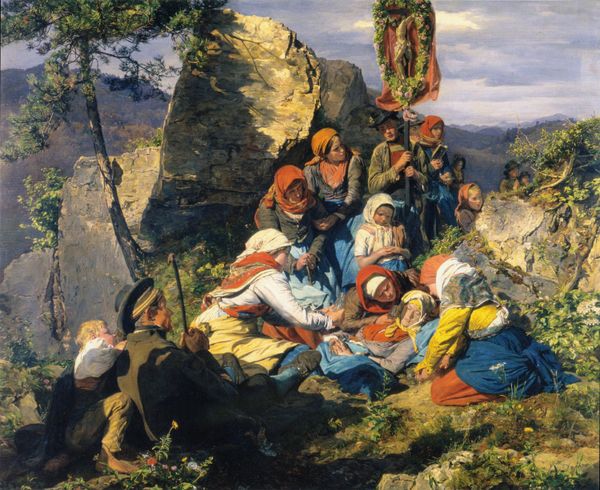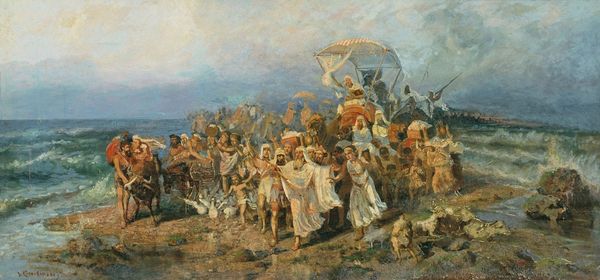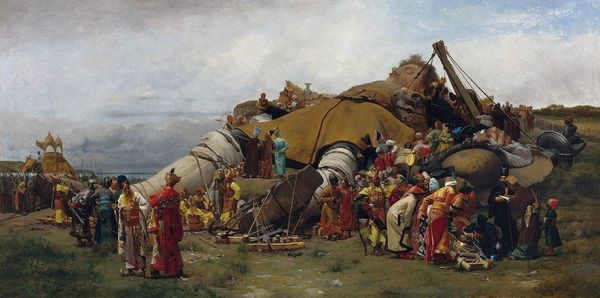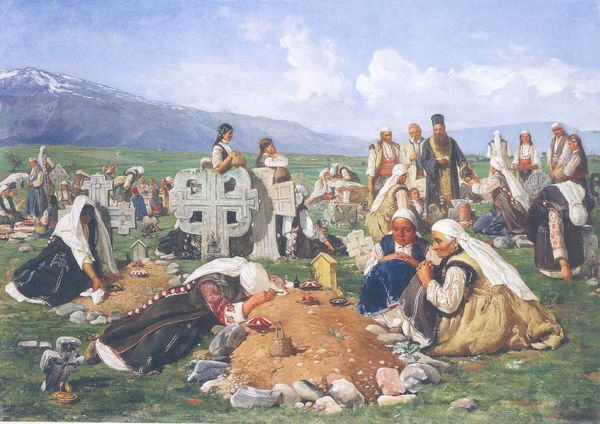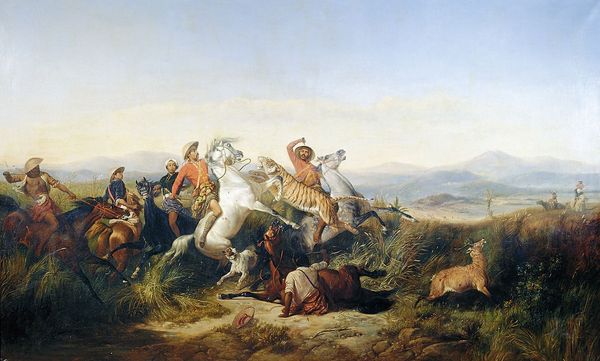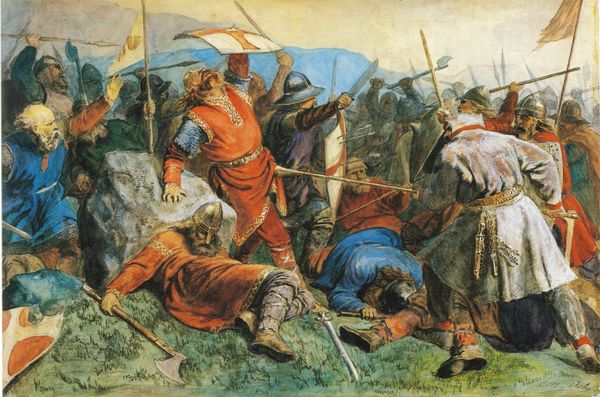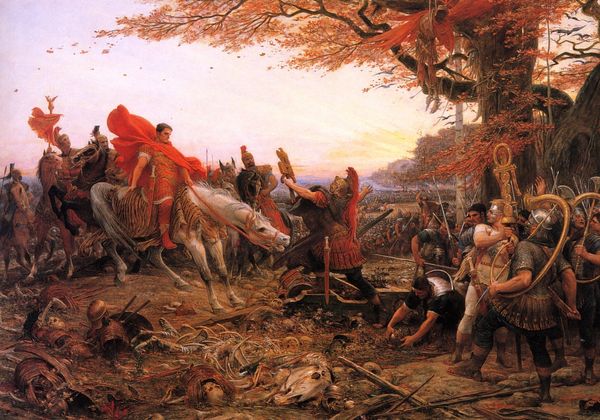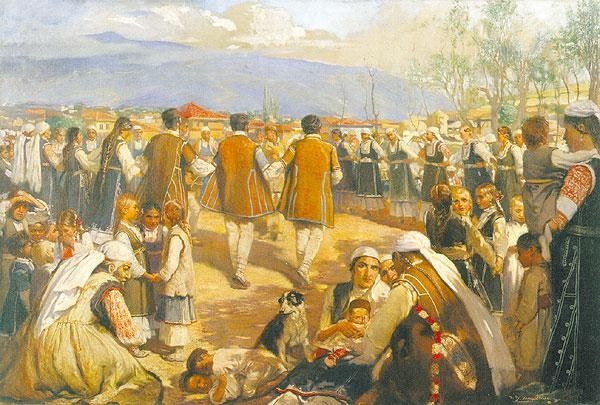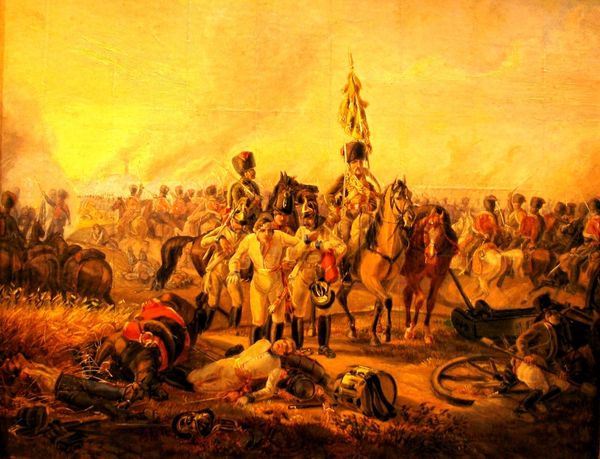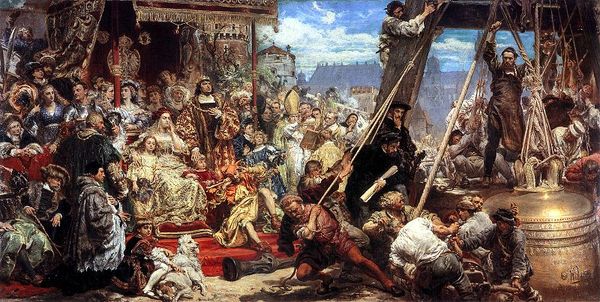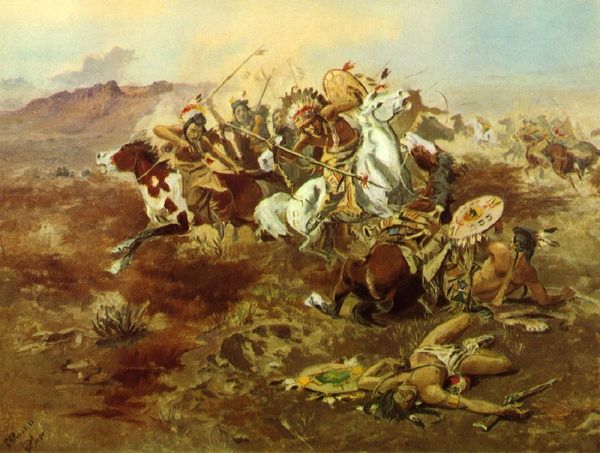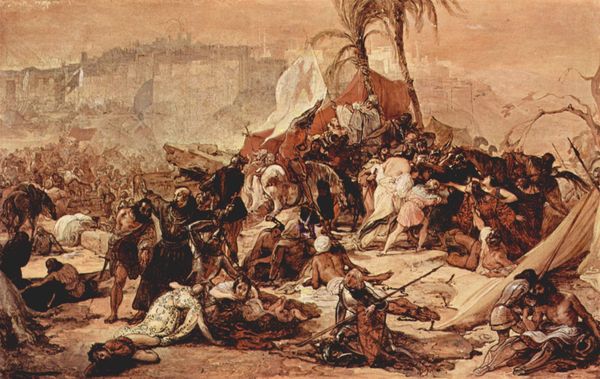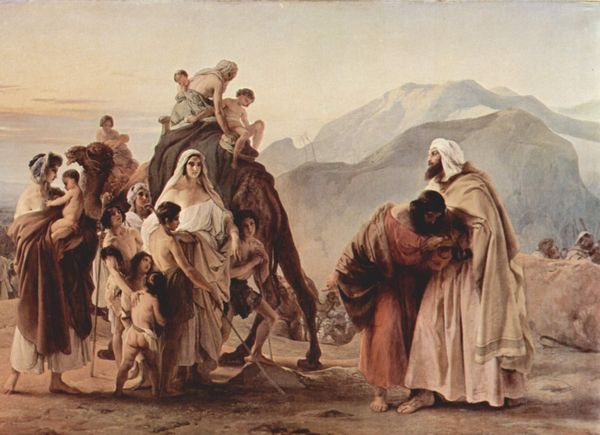
Copyright: Public domain
Curator: Ivan Mrkvička’s 1899 oil painting, "Zaduszki," captures a profound moment of collective remembrance. Editor: My first impression? The earthiness really strikes me – the way the ground seems to rise and meet the sky. It evokes a sense of connection to the land, especially poignant considering the somber setting. Curator: It's precisely this connection that resonates. "Zaduszki" translates to "All Souls' Day," and it's a traditional Eastern European day to commemorate the departed. Mrkvička situates this tradition within a broader history of cultural memory, echoing themes of loss and collective identity shaped by history. Notice how the painting captures an enduring practice linked to specific gender roles. Editor: Right, the presence of all the textiles signals labor and community… look at all that linen and wool. You see it in their head coverings, the draped fabric of mourning... Curator: Absolutely. Consider, too, how Mrkvička chooses to represent the individuals: predominantly women and elders. This reveals gendered aspects of mourning. Women, often the keepers of memory within patriarchal structures, become central figures in this communal ritual. Editor: These women are literally feeding the earth. The woven baskets containing food, offerings laid before makeshift graves... It speaks to the physicality of grief, a tangible expression made through material goods. How fascinating to examine consumption and disposal within rituals that mediate between the living and the dead. Curator: And within the broader narrative of European history, how the history of commemoration is written by ordinary people not leaders or institutions. It suggests agency and communal empowerment in times of loss. Editor: Ultimately, this scene makes a space where grief is felt, not merely represented. You understand something about human labor and sustenance here, the production of grieving, its costs and also its enduring strengths. Curator: It’s about acknowledging the historical and cultural circumstances. Thanks to this work by Mrkvička, it seems that, in the end, history is never really past. Editor: That said, you’re right. Zaduszki offers the sense of remembrance, and Mrkvička gives its rituals enduring artistic form.
Comments
No comments
Be the first to comment and join the conversation on the ultimate creative platform.
